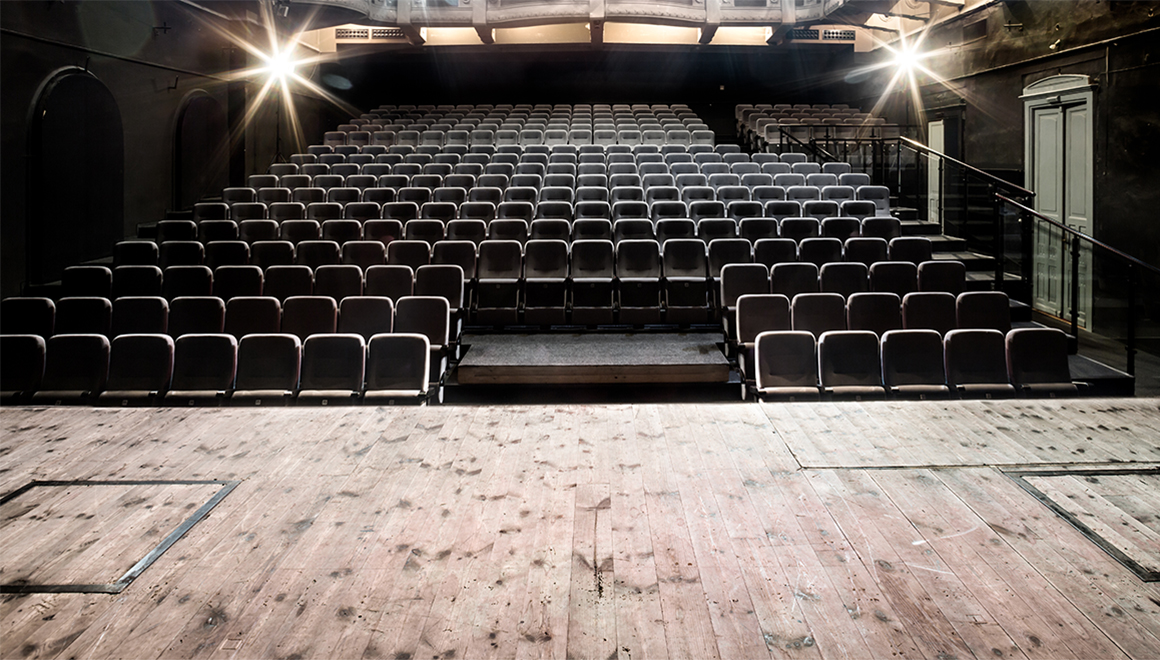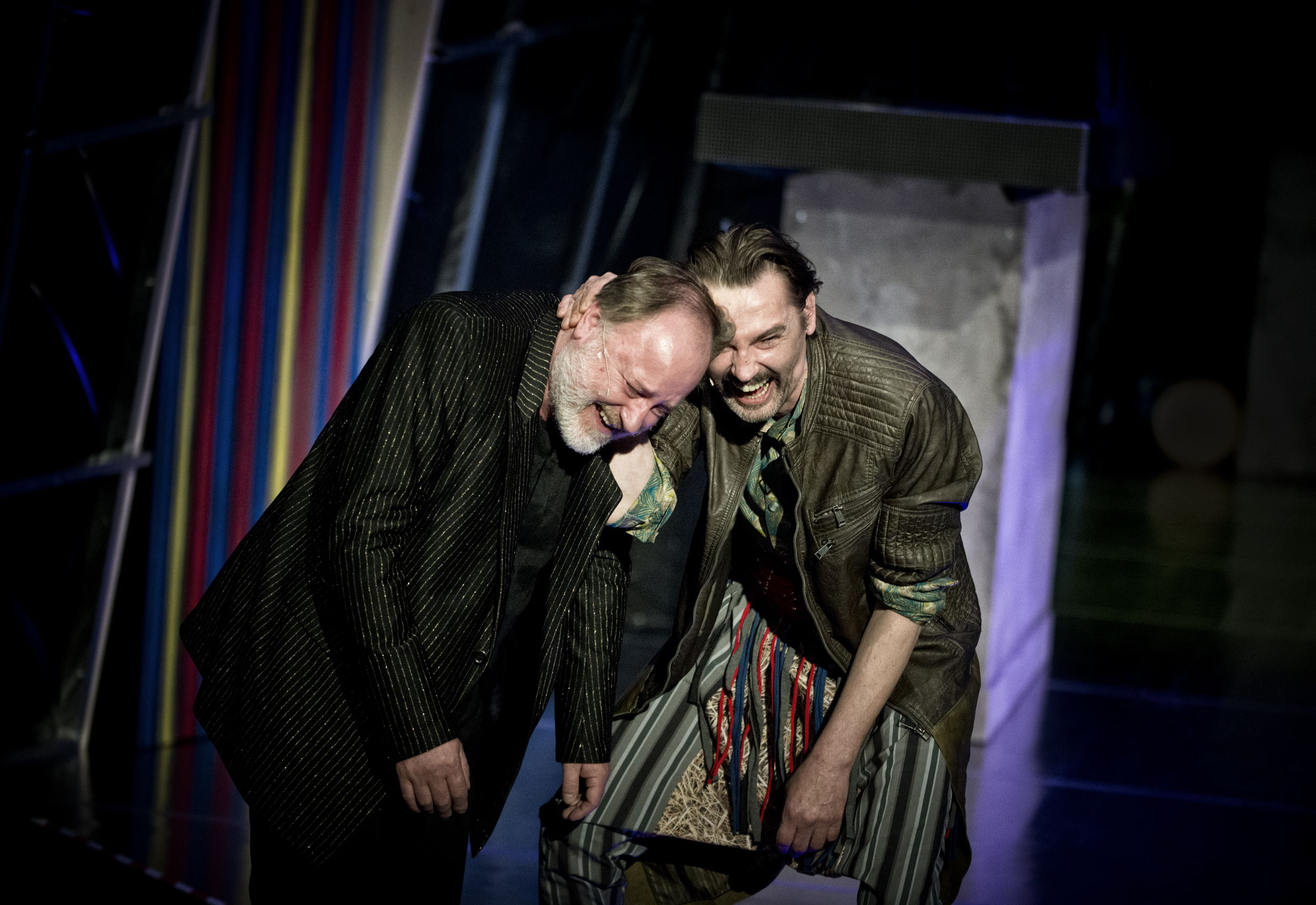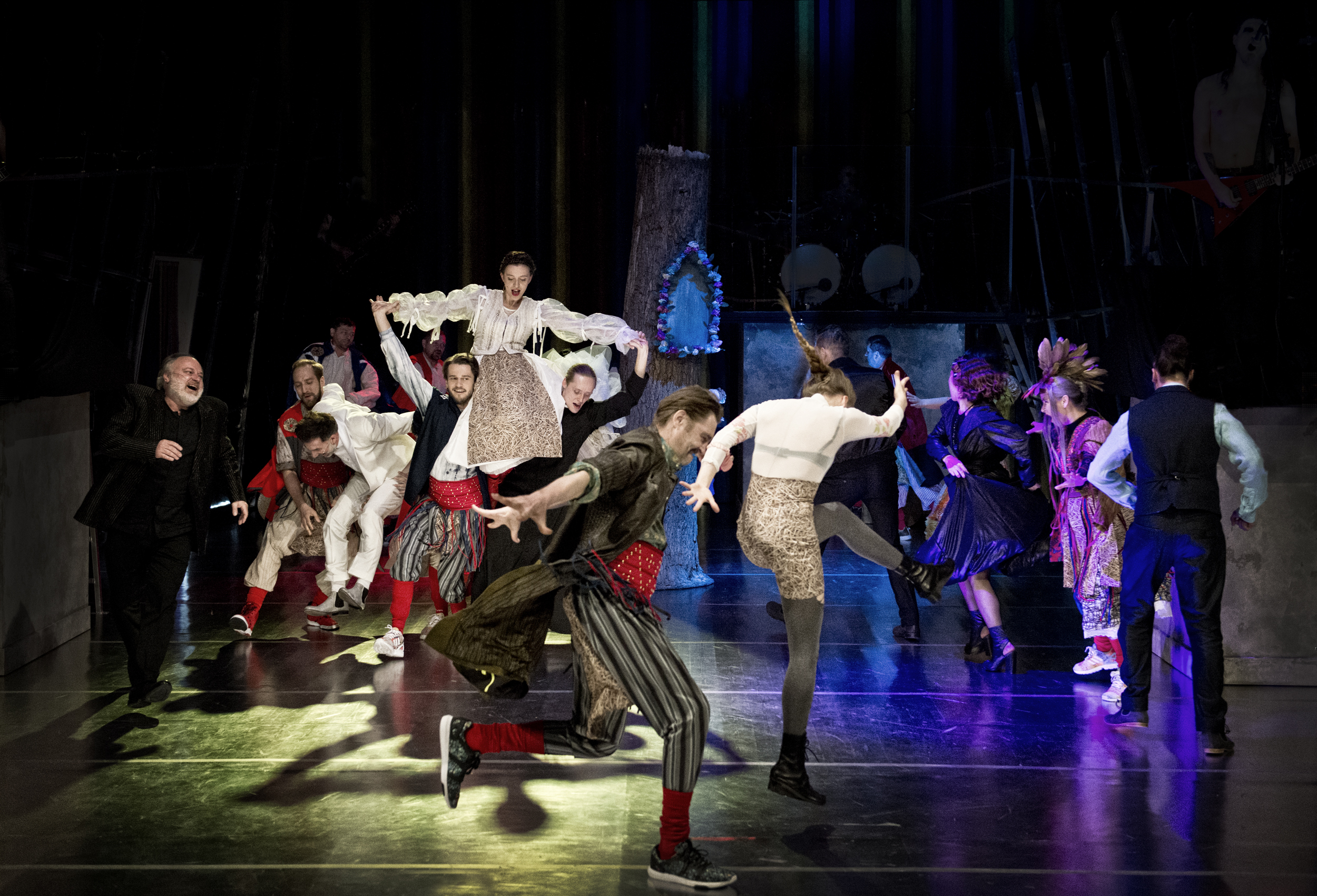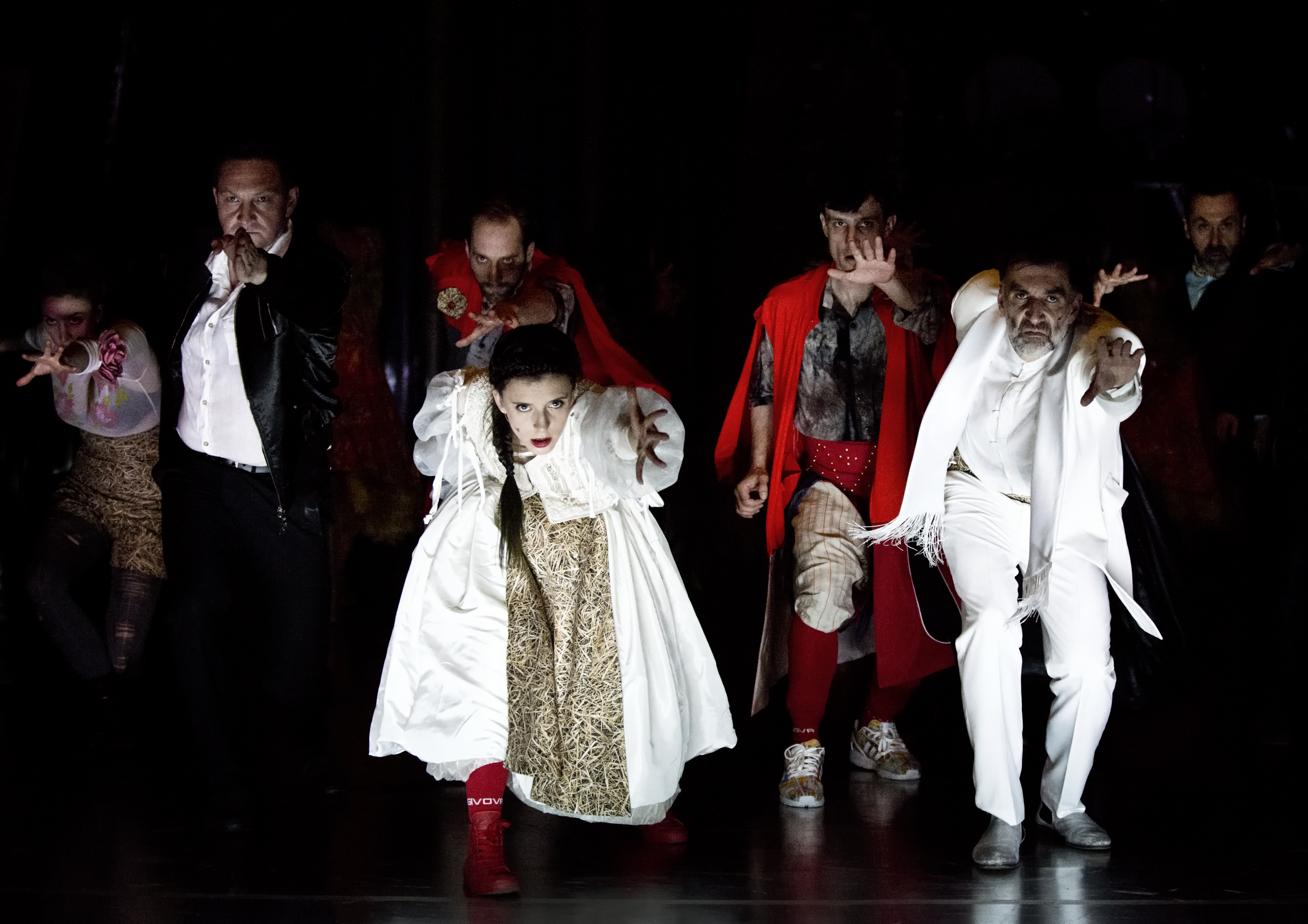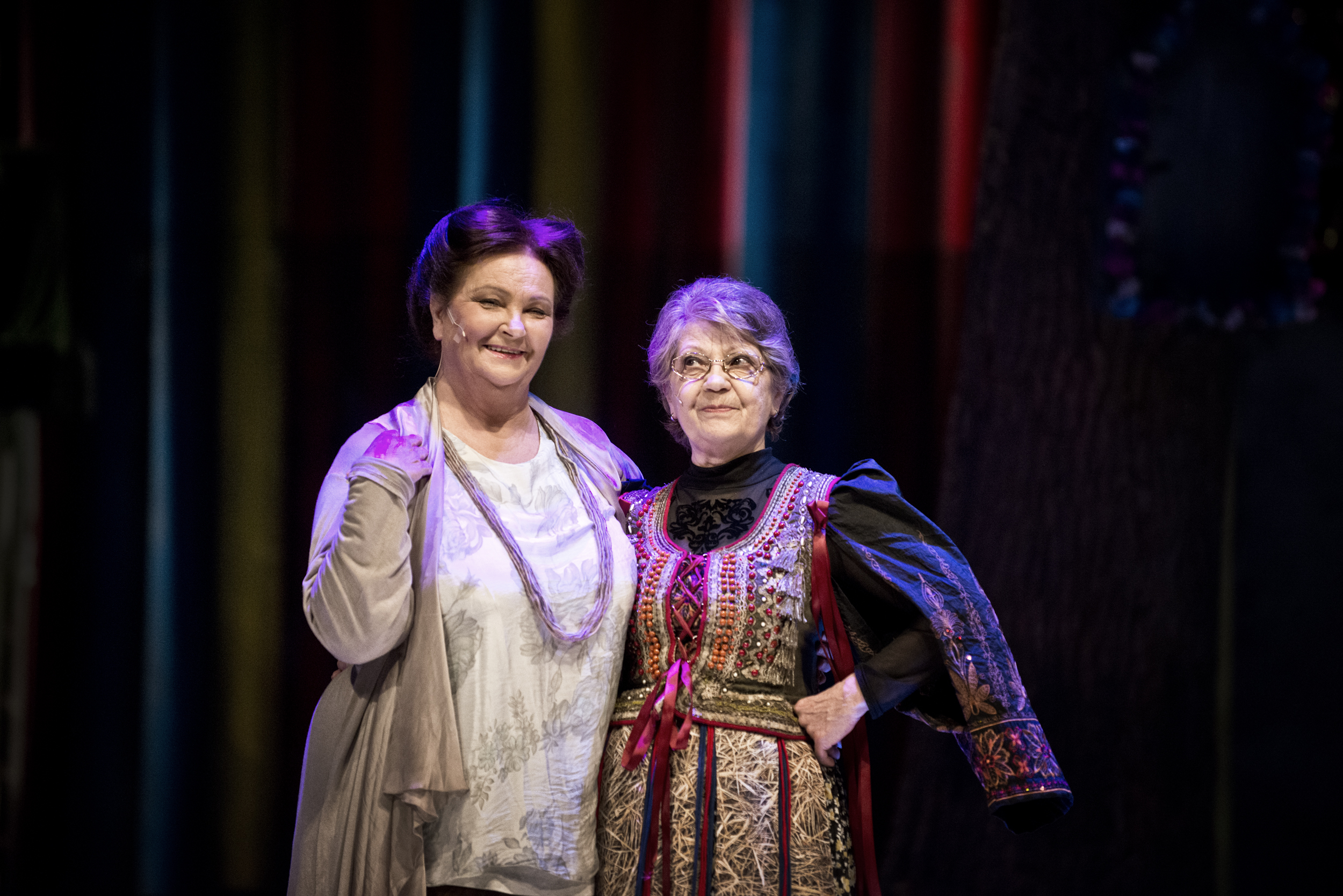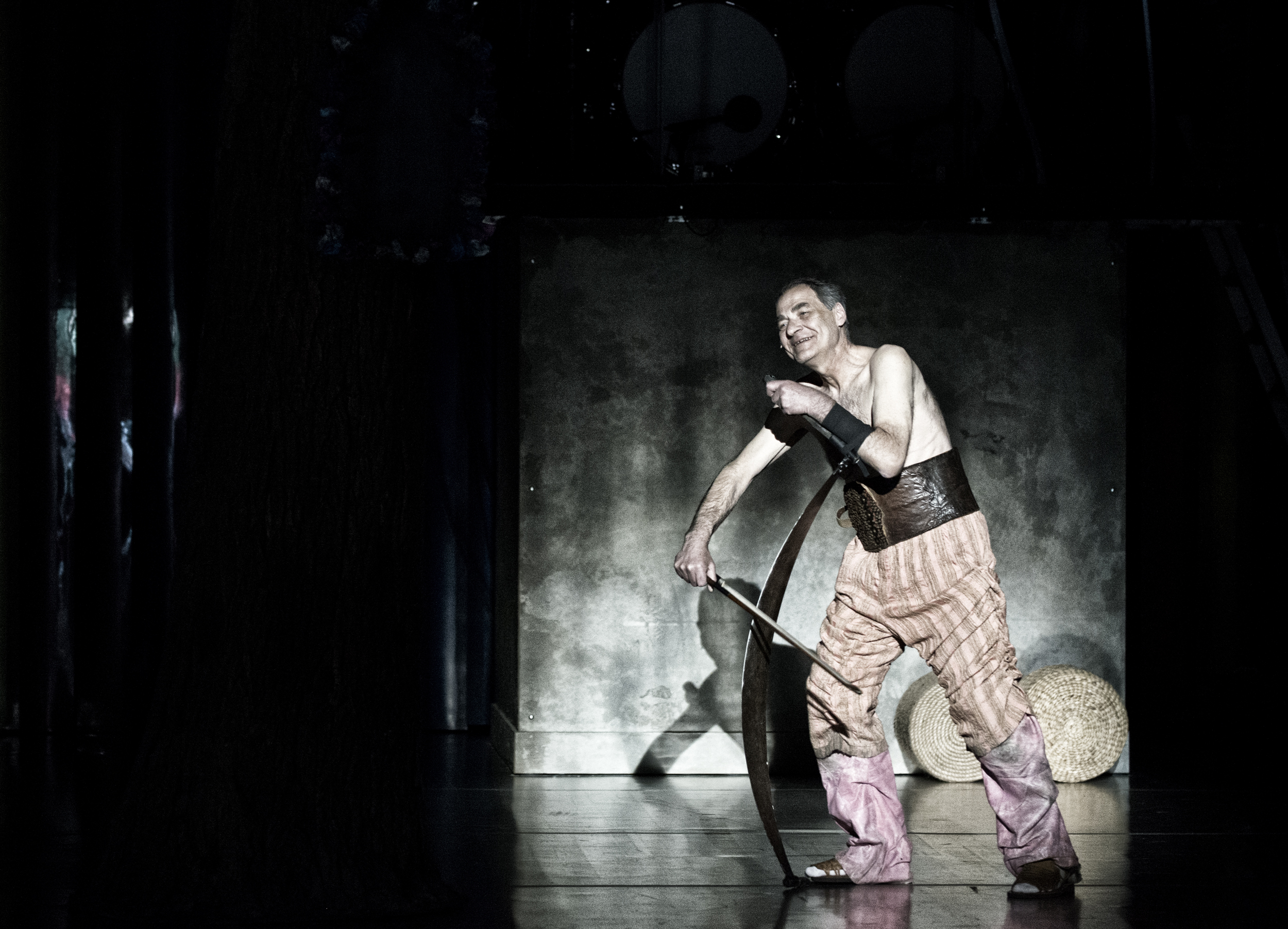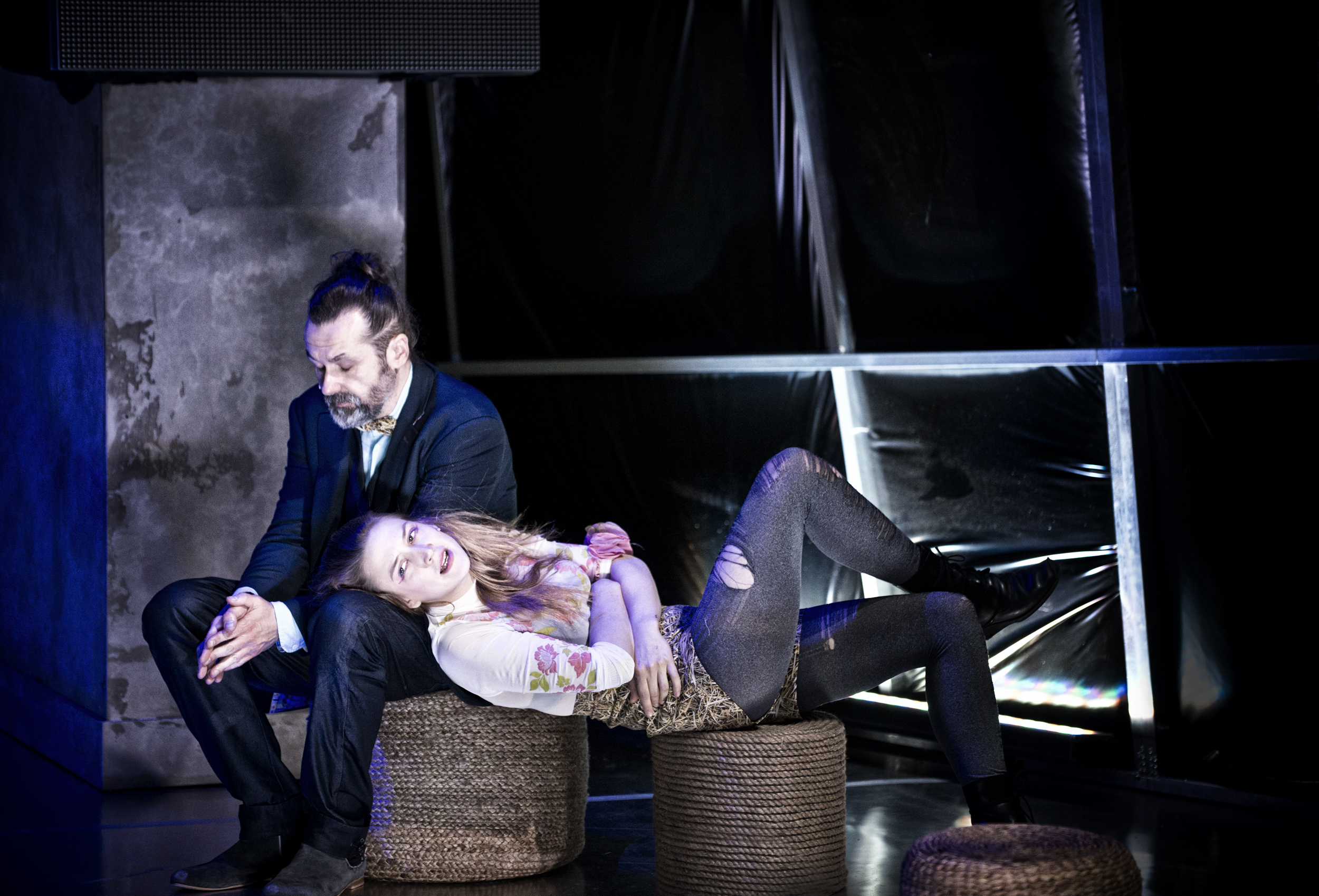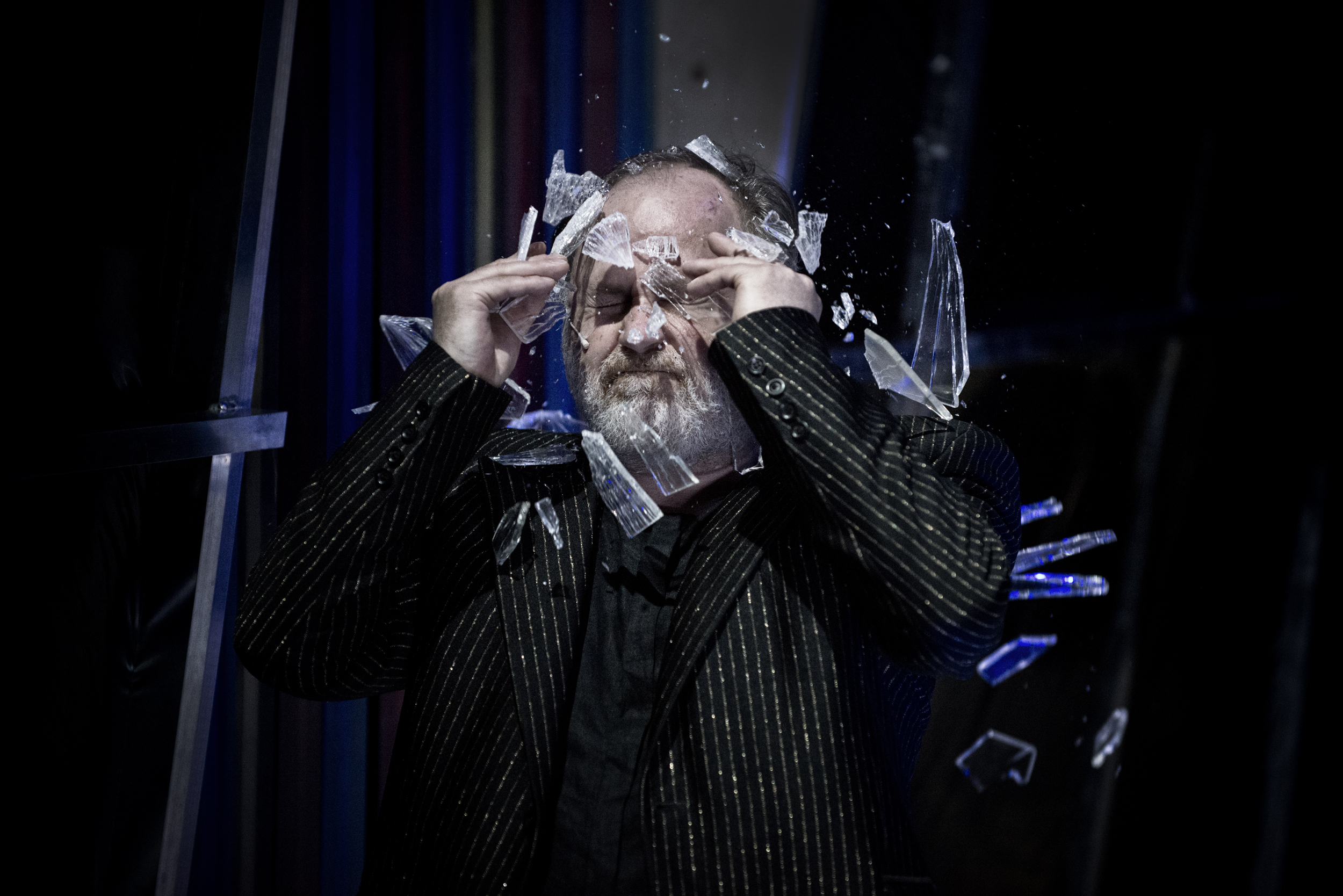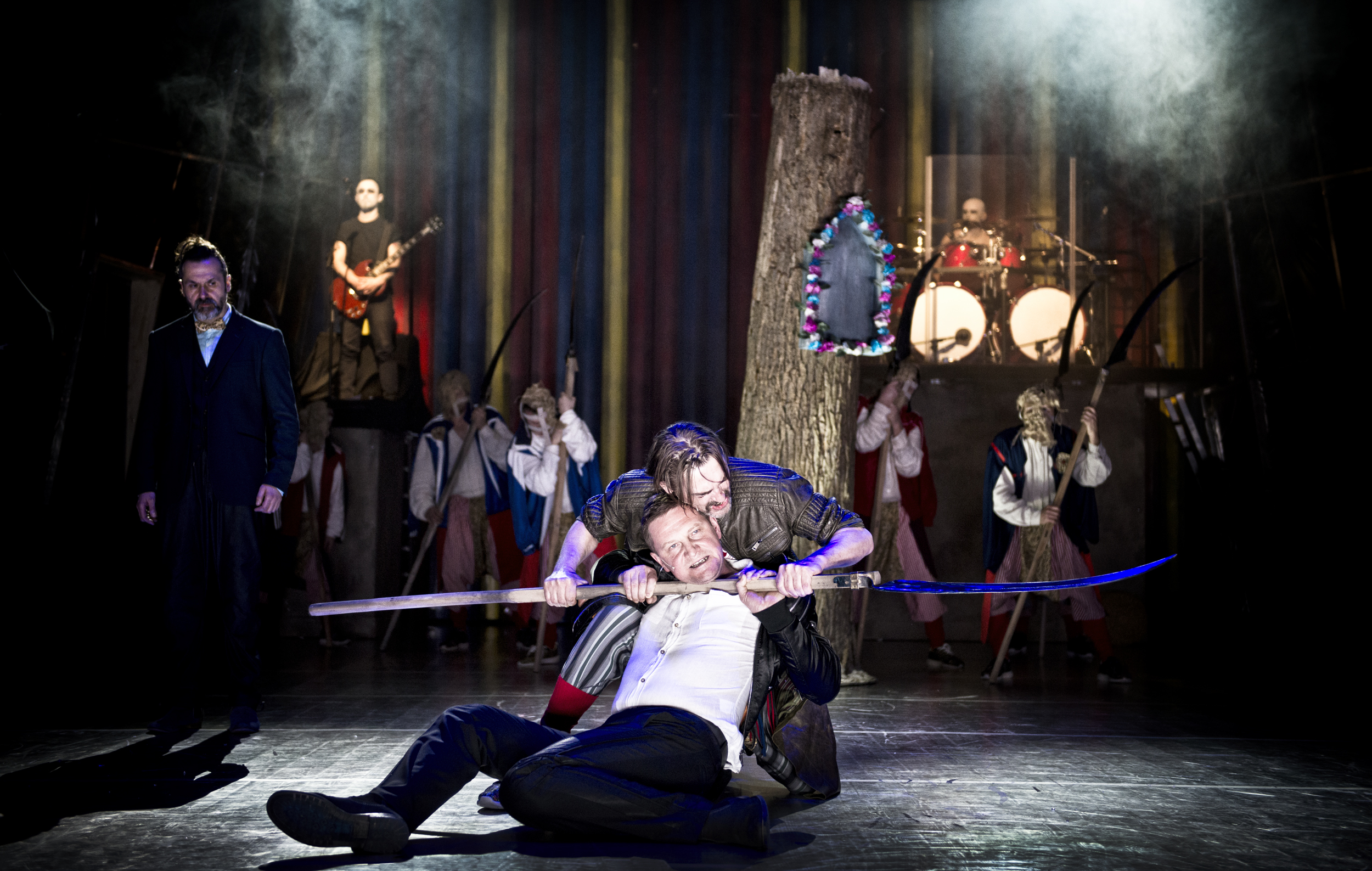Actors
Actors
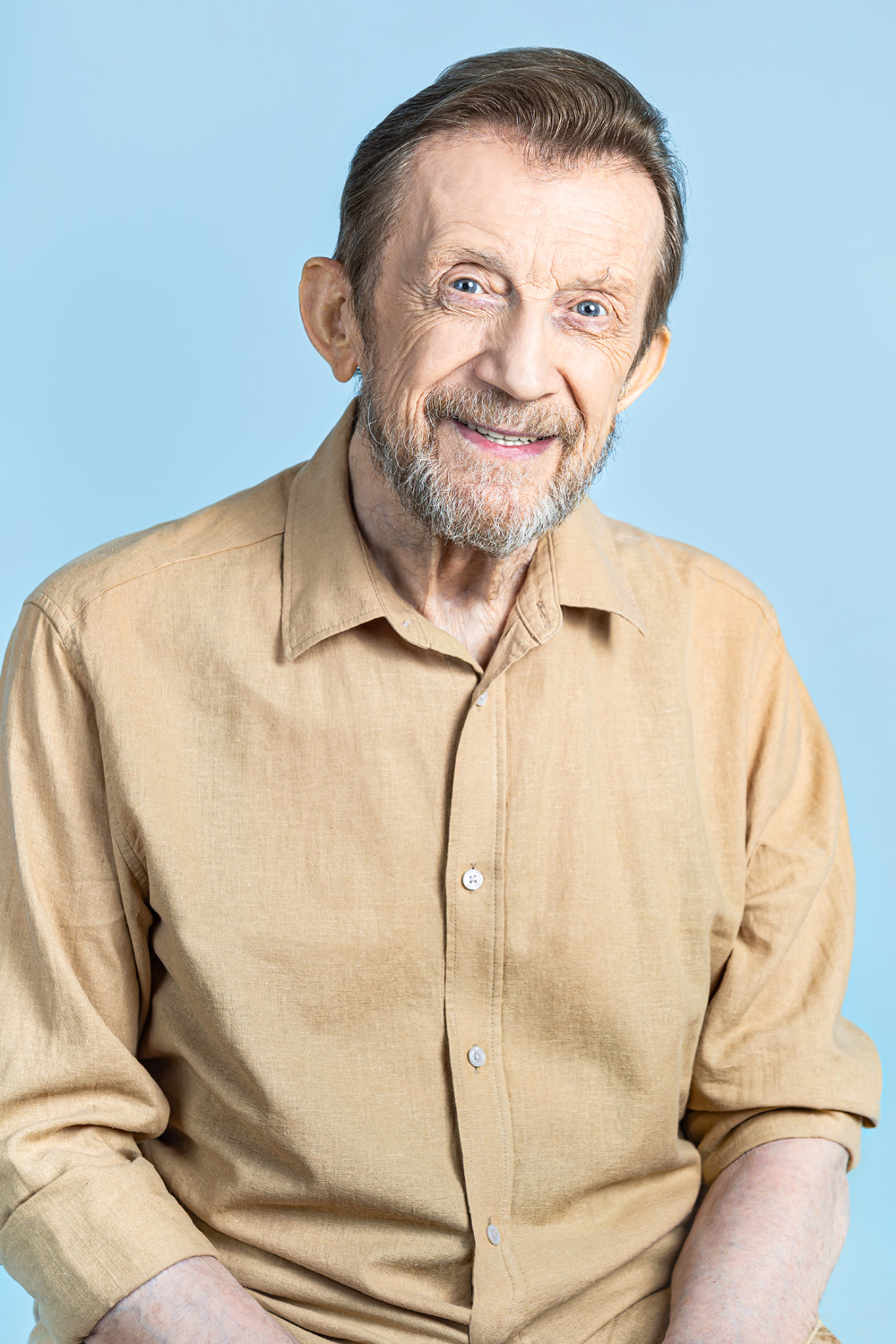
Edward Linde-Lubaszenko
External exam for actors (1963), diploma from the Directors’ Faculty of the Ludwik Solski State Theatre School in Krakow (1977)
The acting of Edward Linde-Lubaszenko, with its dazzling intelligence, full of self-effacing distance, disciplined and consistent, rejecting superficial formalism, outwardly cool, dredges up the most profoundly conceived psychological truths of the characters he plays. His very masculine appeal and the charming bass of his voice brilliantly harmonize with the character types he portrays. Forty years ago, his fascination for theatre prevailed over his vocation as a doctor and Edward Linde-Lubaszenko abandoned his medical studies, passed an external acting school exam, and was hired by the Polski Theatre in Wrocław. Prior to that, he appeared in the outstanding Kalambur student theatre. His first years were a time of exploration, during which he changed theatres several times. It was only his seven-year stint under director Andrzej Witkowski at Wrocław’s Współczesny Theatre and meeting Jerzy Jarocki that fully shaped his thespian personality. He was invited to join the Stay Theatre ensemble with several outstanding roles and nine years of theatre experience behind him. He has remained faithful to this stage since 1973, most recently guest-appearing as Stańczyk in the acclaimed performance of Wyspiański’s “The Wedding” directed by Jan Klata.
Linde-Lubaszenko began working at the Stary Theatre at a watershed period of the stage’s development. He worked with some of the greatest personalities in Polish theatre: Jerzy Jarocki, Konrad Swinarski, Andrzej Wajda, Krystian Lupa, and Tadeusz Bradecki. As he stressed on several occasions, work with Jerzy Jarocki (with whom he worked on twenty-one plays) was a school of humility and hard labour, digging down into the deepest layers of the actor’s consciousness. The summit of his artistic accomplishments with this director was the role of Lopakhin in Chekhov’s “The Cherry Orchard.” Multifaceted, based on subtle semitones, with a shattering final scene, it remained in viewers’ memories as an expression of the greatest heights of the actor’s craft. Work with Konrad Swinarski had two sides. The actor played the role of the Director in Wyspiański’s “Liberation” (the director’s final staging at the Stary Theatre), and was also his student during directorial studies at the PWST Theatre School, and an assistant in staging Shakespeare’s “Hamlet” (interrupted by the director’s tragic death).
His roles in Andrzej Wajda’s productions included: the cold, ironic Chłopicki in Wyspiański’s “November Night”; the statuesque Ghost of Hamlet’s father in Shakespeare’s “The Tragedy of Hamlet, Prince of Denmark”; the defeated suicide Alexei Kirillov in Dostoevsky’s “The Demons”; they all perfectly melded with the space of “total theatre” the director created. Work with Tadeusz Bradecki bore fruit in creations that displayed enormous intuition in selecting means of expression (Jonasz Croft and his complex philosophical arguments in “A Model for Metaphysical Proof,” the equally unabashed Bertolt Brecht in Kleberg’s “The Sorcerer’s Apprentices,” or the ironically jesting, eternally drunk Bernardine in Shakespeare’s “Measure for Measure”). The actor’s portfolio is filled with stand-out roles with perfect, expressive gestures and movements, going against the grain of the tradition, especially when playing Peachum from Brecht’s “Three-Penny Opera” (dir. Ryszard Major) or the demonic madman of Stanisław Ignacy Witkiewicz’s play, Gyubal Wahazar (dir. Roman Próchnick). His personality flourishes in thespian duels, in fencing with words, especially when it comes to the “battle of the sexes.” His Edgar was grotesque and campy paired with Elżbieta Karkoszka in Strindberg’s “Dance of Death” (dir. Adam Sroka) and moving in the subtleties of his feelings as Andrew Makepeace Ladd Jr. in Gurney’s tearjerker “Love Letters” (dir. Włodzimierz Nurkowski). Edward Linde-Lubaszenko directed three productions at the Stary Theatre: Dworecki’s “The Man from Nowhere,” Jan Paweł Gawlik’s “Exam,” and Isaac Babel’s “Maria.” He stresses, however, that you should choose one side of the footlights in the theatre; committing oneself to acting leaves no room to work as a director. (eb)
In the Theatre
In the repertoire
- The Constant Prince
- The Wedding - Stanczyk **
